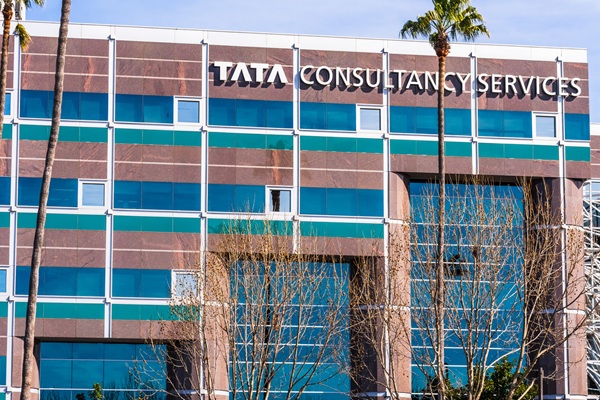.png)
TCS Trims Fat as AI Shift Forces Rethink of India’s IT Growth Story
TCS’s 12,200 job cuts spotlight AI upheaval, margin strain and fading labour-cost advantages reshaping India’s IT services model.


Dhananjay Sinha, CEO and Co-Head of Institutional Equities at Systematix Group, has over 25 years of experience in macroeconomics, strategy, and equity research. A prolific writer, Dhananjay is known for his data-driven views on markets, sectors, and cycles.
July 30, 2025 at 3:47 AM IST
Tata Consultancy Services’ plan to cut 12,200 jobs would once have been unthinkable. The country’s largest software exporter, with more than 613,000 employees, has long symbolised India’s IT ascent and its ability to generate steady jobs even in downturns.
Yet the company’s most sweeping workforce reshuffle in years is not a crisis response. It is a pre-emptive strike to survive a world where clients want more for less, artificial intelligence is hollowing out mid-level roles and labour arbitrage, the engine of India’s tech boom, no longer carries the same premium.
The layoffs, spread through fiscal 2026 and aimed largely at mid- and senior-level staff, are part of a strategic recalibration rather than mere cost-cutting. TCS is aligning its workforce to an AI-driven delivery model, tightening redeployment norms and curbing unallocated time. The company is also imposing stricter productivity benchmarks for new hires, signalling a clear shift from volume-driven growth to value-driven execution.
This change comes amid faltering revenue momentum. The company grew barely 1.1% year on year in the first quarter of 2025-26, a sharp comedown from double-digit expansions of the past decade. At the same time, wage bills are rising, attrition remains high and upfront investment in AI and cloud capabilities is weighing on margins. Profit per employee has stagnated as costs climb faster than revenues, leaving little room for generous dividends to cushion investor unease.
For an industry built on predictable growth, this moment feels like a pivot.
TCS’s travails are not unique. Infosys, Wipro and HCL face similar margin pressures and client demands for cost take-outs rather than digital transformation splurges. The entire sector is contending with a new reality in which global protectionism has chipped away at offshoring’s appeal, clients are diverting technology budgets to hardware and AI infrastructure, and competition from product-first tech firms is intensifying.
Margin Squeeze
Investors are already voting with their feet. High valuations that once relied on steady profit growth now look stretched. With EBIT margins eroding, the premium that Indian IT commanded over global peers risks slipping away. The danger is not confined to stock prices. Margins are a proxy for operational health in this business, funding everything from research to talent retention. Squeezed margins mean less firepower to invest in emerging technologies precisely when the shift to AI demands it most.
The workforce dynamic adds another layer of strain. Attrition has been climbing, driven partly by employees seeking higher pay elsewhere and partly by dissatisfaction with career progression in an era of flatter hierarchies. Restrained hiring, while helpful for cost control, risks deepening this malaise by stretching workloads and eroding morale. Balancing retention incentives with productivity targets has become a delicate act, especially when talent gaps in AI and data sciences remain acute.
This transition is also testing the industry’s social contract. Indian IT services have long been celebrated as white-collar job creators, propelling millions into the middle class. A wave of layoffs, even if limited to 2% of TCS’s workforce, challenges that narrative and feeds into broader anxieties over technology displacing humans. Policymakers, keen to showcase India as a digital powerhouse, may find themselves pressed to respond through reskilling initiatives or more vocal labour protections.
None of this is to say TCS is in decline. Its diversified service mix, deep client relationships and reputation for execution give it advantages many rivals lack. The company has successfully navigated past tech transitions, from mainframes to cloud, and built enduring franchises in banking, retail and life sciences. Its current pivot, embracing AI-led delivery and stricter efficiency norms, may prove similarly prescient. But the path will be bumpy.
The broader question is whether India’s IT sector can reinvent itself quickly enough. The labour-cost moat that fuelled decades of growth is shrinking, and AI threatens to compress it further. Winning the next phase will depend less on headcount and more on proprietary platforms, domain expertise and the ability to integrate AI into every workflow. That demands not just capital investment but cultural change, shifting from a services mindset to one of innovation and productisation.
For investors, the trade-off is stark. Near-term earnings will likely stay under pressure as companies spend on reskilling, AI infrastructure and automation. The bet is that these investments will pay off in higher productivity and stronger pricing power in the medium term. Whether markets are willing to wait is uncertain, especially when global tech giants offer faster growth narratives.
TCS’s job cuts mark more than an internal restructuring. They are a marker of Indian IT’s next chapter, one where survival hinges on doing more with less and where growth is measured not in headcount but in algorithms.



